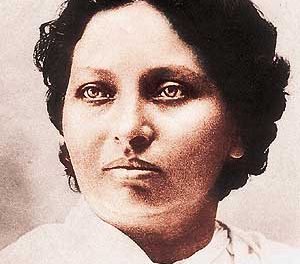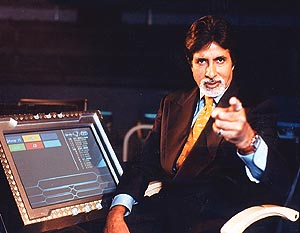 Indian law has continued to treat adultery as a criminal offence being listed as it is under Section 497 of the Indian Penal Code (IPC). But sociologists and women's rights activists are beginning to question the premise. Tikicus Polepaka, a lawyer by training, argues that it should be continued to be treated as a crime and not just as a social offence.
Indian law has continued to treat adultery as a criminal offence being listed as it is under Section 497 of the Indian Penal Code (IPC). But sociologists and women's rights activists are beginning to question the premise. Tikicus Polepaka, a lawyer by training, argues that it should be continued to be treated as a crime and not just as a social offence.
Hitherto in India, adultery is treated as one grave crime and a serious ground for divorce under all the marriage Acts whether it is Hindu Marriage Act, 1955, or Special Marriage Act, 1954, or Indian Divorce Act, 1869.
However, there is a strong undercurrent movement to change adultery from a crime to a social offence. The National Policy on Criminal Justice recommends that adultery be treated as a social offence rather than a criminal one. Guess Karan Johar did know what he was talking about when he made Kabhi Alvida Na Kehna after all. The film may not have gone down well with the audience, but is sure to have touched a chord somewhere. Adultery after all is a truth that our society prefers to brush under the carpet. And herein lies the twist in the tale. With the National Policy on Criminal Justice, authored by the Mahadeva Menon Committee, recommending that adultery be decriminalized, i.e. be treated as a social, rather than a criminal offence.
As ex-army man turned sociologist Santosh Kumar, puts it, "The concept of adultery has always been disapproved by society. But this does not make adultery a criminal offence as there are various circumstances like family problems, maladjustment between spouses, etc which may lead one into such a relationship. Hence, it is more a social than a criminal offence."
As women's rights activist and editor of the well-known journal Manushi, Madhu Kishwar, says, "I don't think adultery is a crime like murder or rape. The act of adultery depicts great irresponsibility and betrayal of trust towards not just the spouse, but the whole family. Naturally, it affects not just the family, but the entire social system. But this does not mean that the person in such relationship should be kept behind bars."
Adultery and Society
The seventh commandment of the Bible says "Thou shalt not commit adultery." Nevertheless, this sin has been committed throughout history. Today, though, adultery seems more rampant than ever. While tabloid stories report the affairs of politicians, millionaires, and movie stars, films like "The English Patient," "The Prince of Tides," or "The Bridges of Madison Country" feature and even promote adultery.Perhaps you are thinking, "This is just a problem with the people of other faiths in society. It can't be a problem in the church. Certainly the moral standards of Christians are higher." Well, there is growing evidence that adultery is also a problem in Christian circles. The Journal of Pastoral Care in 1993 reported a survey of Southern Baptist pastors in which 14 percent acknowledged they had engaged in this area of sin. The researchers also interviewed nearly 1000 subscribers to Christianity Today who were not pastors. They found the numbers were nearly double: 45 percent indicated having done something sexually inappropriate, and 23 percent having extramarital relationships. Adultery is in society and is now in the church.
The reality of Life D. Martyn Lloyd-Jones wrote in The Plight of Man and the Power of God, Why is it that man ever chooses to sin? The answer is that man has fallen away from God, and as a result, his whole nature has become perverted and sinful. By nature he hates God and feels that God is opposed to him. His god is himself, his own abilities and powers, his own desires. He objects to the whole idea of God and the demands which God makes upon him. … Furthermore, man likes and covets the things which God prohibits, and dislikes the things and the kind of life to which God calls him. These are no mere dogmatic statements. They are facts … They alone explain the moral muddle and the ugliness that characterize life to such an extent today.
Deep in our hearts, we all know something is desperately wrong with us. Our conscience constantly confronts us with our own sinfulness. Try as we might to blame others or seek psychological explanations for how we feel, we cannot escape reality. We cannot ultimately deny our own consciences. We all feel our guilt, and we all know the horrible truth about who we are on the inside. We feel guilty because we are guilty. Only the cross of Christ can answer sin in a way that frees us from our own shame.
Psychology might mask some of the pain of our guilt. Self-esteem might sweep it under the rug for a time. Other things—such as seeking comfort in relationships, or blaming our problems on someone else—might make us feel better, but the relief is only superficial. And it is dangerous. In fact, it often intensifies the guilt, because it adds dishonesty and pride to the sin that originally wounded the conscience. True guilt has only one cause, and that is sin. Until sin is dealt with, the conscience will fight to accuse. And sin—not low self-esteem—is the very thing the gospel is given to conquer. That is why the apostle Paul began his presentation of the gospel to the Romans with a lengthy discourse about sin.
Total depravity is the first gospel truth he introduced, and he spent nearly three full chapters on the subject. Romans 1:18-32 demonstr
ates the guilt of the pagans. Romans 2:1-16 proves the guilt of the moralist, who violates the very standard by which he judges others. And Romans 2:17—3:8 establishes the guilt of the Jews, who had access to all the benefits of divine grace but as a whole rejected God’s righteousness. Since Romans 1 Paul has argued eloquently, citing evidence from nature, history, sound reason, and conscience to prove the utter sinfulness of all humanity. And in verses 9-20 of chapter 3, he sums it all up. Paul reasons like an attorney giving his final summation. He reviews his arguments like a prosecutor who has made an ironclad case against all humanity. It is a powerful and compelling presentation, replete with a charge, convincing proof, and the inescapable verdict.
The universality of human depravity as it is written, There is none righteous, not even one; there is none who understands, there is none who seeks for God; all have turned aside, together they have become useless; there is none who does good, there is not even one. With these inputs one can come to some grips that adultery is not a social crime but its comes under the moral category. When we talk about the morality one should have the strong grounding of absolutes. When we talk about the absolutes verity of questions may come up such as “who are you to impose your morality on other” and “how can you say another culture’s moral standards are inferior”. If God existed, we would certainly expect objective moral values to exist. Such values would not be surprising or unnatural at all.
After all, if we humans have been made to resemble God in certain important respects, if we have been created in the image of a personal God, then we should not wonder that each of us has intrinsic dignity and worth, that we are morally responsible agents, that we have the capacity to recognize moral truths, and that we have certain moral obligations. When the issues like adultery arises we will be more bother what is legal and social but we are least bothered what is moral. This understanding will fit in to a framework once you and I believe in a moral God. The reason I say this because who knows what is right and what is wrong when He says in the bible "Thou shalt not commit adultery." Means its comes from a God who wants you and I to be morally right in this area of our life. If not He made a provision to correct our self, that is the reason He died for our sins on the cross so that you and I can come back to Him and ask for forgiveness and lead our lives in His paths.
{moscomment}







Thanks for the incites on Adultery as social crime. Well-structured article. Bur my opinion who are these people with Christian mind to say certain thing in the society and say right and wrong. After all it’s the law need to say rights and wrongs. If some particular religions allow these practices how can the author say it is wrong.
Trangsden
Good stuff once again confirmed the justice of God. ultimatly all laws should confirmed to the one who gives the Law.
Well done Mr. Polepaka
Social Science argues that prostitution was the first trade/business to have evolved within human civilization – the buying/utilization of “sexual services” by someone other than the person (spouse) recognised by the society to recieve it (who would ‘pay’ for something recognised as belonging to him?).
This stems from their argument that marriage was amongst one of the earliest laws regarding sharing of “resources”.
Which means that the unauthorised ‘user’ is taking/using something that the society recognises as not his (but belonging inherently to someone else), which is a crime in (almost ?) all civilizations and relegions.
So adultery, a euphemism for prostitution, should be a counted as a crime, and not just a social offence.
Good stuff. But my argument is some tome back around 70;s prostitution was a serious crime in Mumbai declared by the high court but exactly ten years later the same thing has been legalized by the same court. What kind kind of law is this. You mean only God can say what is right and not.
Sushil
The lesser the importance given to adultery in regard to law, more will be those who take advantage of it. Marriage is holy. when one decides to marry, isnt it also important to remain true to the vow that he takes on his wedding day!
I do agree but the individuls are free to decide to act on. I dont think any moral law (from God) to deal such issues as this. After all this is the system made by man not by some one (God)else
Appeling from a christian world view but not bother for other worldviews. Since my understanding and accepting the reality of life is limited from the agel how the authore draw the lines for morality.
Author tries to project one side of the morality but he need to be conscious of the moral people from every religion. all the realigns says we need to be moral beings. Question is not Who can save but what can saved.